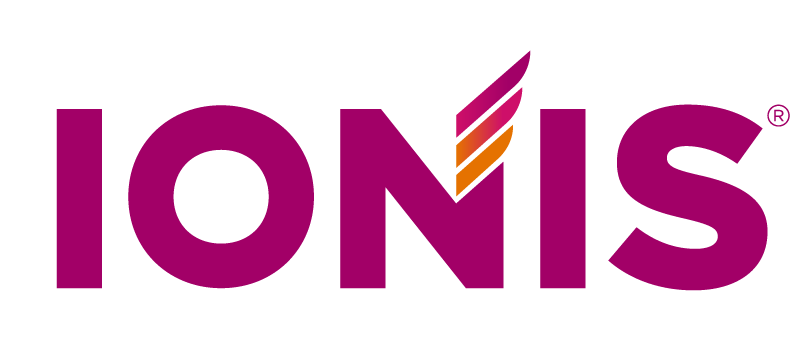Press Releases
Isis Pharmaceuticals Announces Extension of Antisense Cancer Drug Discovery Collaboration With Lilly
Partnership Continues to Focus on Broadly Identifying RNA Targeting Oncology Drugs
CARLSBAD, Calif., May 6 /PRNewswire-FirstCall/ -- Isis Pharmaceuticals (Nasdaq: ISIS) today announced the extension of its antisense drug discovery collaboration in cancer with Eli Lilly and Company (NYSE: LLY). During this extension, Isis and Lilly will continue to characterize and develop RNase H, siRNA, and splicing modulating inhibitors for the treatment of cancer using second and third generation chemistries. An important component of this extension will be the exploration of potential new anticancer drug targets using RNA-directed technologies. This oncology relationship, initiated in June 2002, builds on a broad, ongoing strategic alliance previously established by the companies to discover antisense drugs in the areas of inflammatory and metabolic diseases. Financial terms of the extension were not disclosed.
Early in the oncology collaboration, LY2181308 was jointly studied and selected for clinical trials based on a compelling collection of preclinical data. LY2181308 is directed at survivin, a target that helps to control cancer cell death or apoptosis. As a result of the collaboration's joint efforts, Isis has licensed all RNA-directed drug discovery approaches to the survivin target to Lilly. Both companies recognize the promise these approaches may offer for cancer patients.
"We are pleased to continue our cancer drug discovery collaboration with Lilly which has identified LY2181308 as well as a number of additional interesting anticancer drug leads. As part of our overall alliance, we are broadly exploiting a number of antisense mechanisms, including siRNA and splicing, using second and third generation chemistries, to identify new antisense drugs that broaden Lilly's portfolio of cancer therapies," said C. Frank Bennett, Ph.D., Vice President of Antisense Research for Isis.
About LY2181308
LY2181308, a second-generation antisense agent, targets survivin, a molecule that allows the survival of cells which would normally undergo programmed cell death. When cancer cells grow, they appear to need the help of survivin. The molecule is abundant in many types of cancers, including colon, brain, lung, skin and others, but nearly nonexistent in normal cells. Preclinical results with LY2181308 are among the first to demonstrate antitumor activity in vivo with a drug that specifically inhibits survivin expression.
Isis licensed LY2181308 to Lilly in April 2003. Lilly plans to initiate clinical trials of LY2181308 in 2004.
About RNase H and RNAi (siRNA) Antisense Mechanisms
Antisense technology works by several mechanisms of action. At least 12 known antisense mechanisms can be induced once an antisense drug binds to its target RNA. RNase H, the mechanism by which current Isis clinical drug candidates work, is one, and RNAi is another. The majority of late-stage antisense drugs in development bind to their target RNA and activate a cellular enzyme called RNase H. This enzyme destroys the target RNA, inhibiting production of a specific protein. Isis has cloned and characterized human RNase H and has effectively used that information to design its proprietary second-generation drugs. The company continues to further improve its drugs, using its insights into the RNase H mechanism.
The RNAi antisense mechanism also results in destruction of a target RNA. It differs from the RNase H mechanism by utilizing a different cellular enzyme to destroy the target RNA. Because many diseases are caused by the inappropriate activity of specific genes, the ability to deactivate such genes selectively through RNAi or RNase H mechanisms may provide a means to treat a wide range of human diseases.
About Isis Pharmaceuticals, Inc.
Isis Pharmaceuticals, Inc. is exploiting its expertise in RNA to discover and develop novel human therapeutic drugs for its pipeline and for its partners. The company has successfully commercialized the world's first antisense drug and has 11 antisense products in development to treat metabolic, cardiovascular, inflammatory and viral diseases and cancer. Through its Ibis Therapeutics® program, Isis is developing a biosensor to identify infectious organisms, and discovering small molecule drugs that bind to RNA. As an innovator in RNA-based drug discovery and development, Isis is the owner or exclusive licensee of more than 1,300 issued patents worldwide. Additional information about Isis is available at www.isispharm.com.
This press release contains forward-looking statements concerning the extension of Isis' cancer collaboration with Eli Lilly and Company and the development, therapeutic potential and safety of antisense inhibitors targeting survivin and in treating cancer. Any statement describing our goals, expectations, intentions or beliefs is a forward-looking statement and should be considered an at-risk statement, including those statements that are described as Isis' clinical goals. Such statements are subject to certain risks and uncertainties, particularly those inherent in the process of developing technology and systems used to identify infectious agents, in discovering and commercializing drugs that are safe and effective for use as human therapeutics and in the endeavor of building a business around such products and services. Actual results could differ materially from those discussed in this press release. As a result, you are cautioned not to rely on these forward-looking statements. These and other risks concerning Isis' research and development programs are described in additional detail in Isis' Annual Report on Form 10-K for the year ended December 31, 2003, which is on file with the U.S. Securities and Exchange Commission. Copies of this and other documents are available from the company.
Ibis Therapeutics® is a registered trademark of Isis Pharmaceuticals, Inc.
SOURCE Isis Pharmaceuticals
